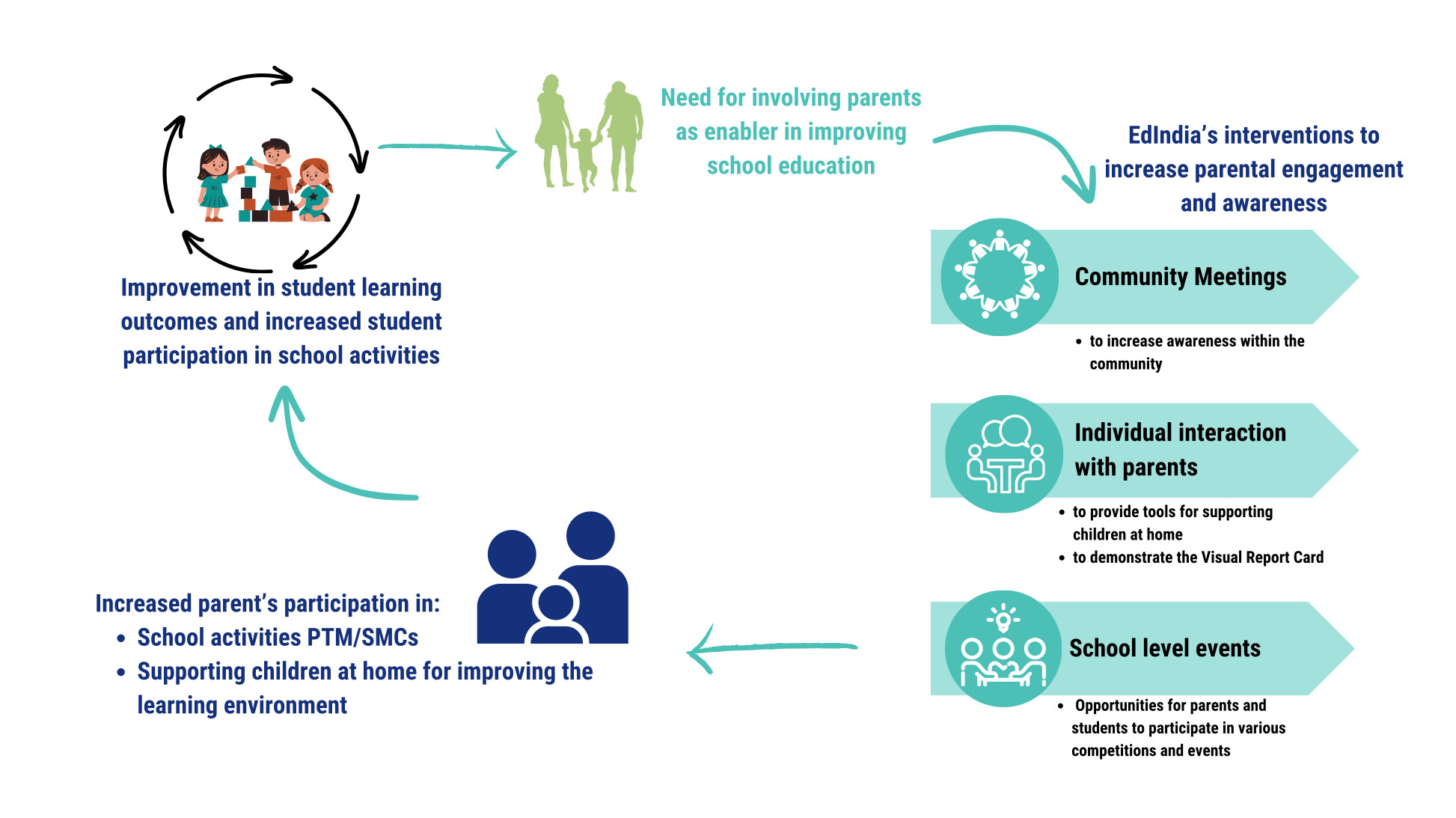Research reveals that 85% of parents feel that they can personally make a difference in their child's learning. While 46% of parents wish they could contribute more to their child's academic progress.
A high rate of parent participation is a key component of effective schools, according to studies, and it can even help reduce the achievement gap between student groups.Effective communication between the school and the home is essential for healthy and effective parent participation. Schools should enroll their staff in the Management and Leadership program as this communication should involve all relevant parties, such as parents, teachers, administrators, specialists, coaches, club leaders, and the parent-teacher association. You may improve parent involvement at your school by using the measures listed below.
8 Ways To Improve Parent Engagement In Schools

Here are a few ways to make parents more involved in schools to help students achieve their academic achievement:
1. Communicate Effectively And Regularly
Families should get updates from schools on a frequent and efficient basis regarding school activities, policies, and their children's achievements. To contact families, schools can communicate with them through a range of platforms, including social media, email, text messaging, app notifications, and newsletters.
Schools should try to combine all communications into one reliable method that parents and guardians are accustomed to.
Do you follow us on Social Media? If not, then you’re missing out on a lot of informative content. We regularly share upgraded educational content, tips, feedback, and more. Check us out by clicking the profiles here - Facebook / Twitter / LinkedIn / Pinterest / Instagram / YouTube
2. Stay Updated With Contact Information
Does your organization use a tool to gauge who you are and are not reaching? Do you promptly go over and correct contact information for any misdirected emails or texts? If not, it might be time to review your communications plan to make sure you're contacting all families or nearly all of them.
Schools must make certain that the contact information in their student information system (SIS) is correct and current to interact with families efficiently.
3. Offer Resources To Support Families
Provide your school's families with a range of engagement options, including volunteer opportunities, open houses, and parent-teacher conferences. Schools can facilitate participation and accommodate the hectic schedules of families by offering a variety of alternatives.
Think about offering tools to assist families with children enrolled in school, such as training sessions and workshops on parenting, homework assistance, and college preparation. By providing families with the resources they need to promote their children's academic achievement, schools may enable families to have an active part in their children's education.
4. Reduce Information Overload
While some schools have trouble communicating enough, many have trouble conveying too much. Make sure your family isn't overloaded with information by first making a list of every gadget and its user.
Think about creating a communications strategy plan and putting in place a tiered communication structure. Find a balance between ‘too much’ and ‘not enough’ by discussing best practices for school-home interactions with your team.
5. Hold Events And Workshops
Consider providing families of students with impairments with a targeted session. Teachers and administrators in special education may offer a literacy workshop with an emphasis on methods for promoting literacy in the home.
Teach parents where to look for leveled literature for their kids at the library or on extra-curricular learning websites. Teach parents how to lead a brief read-aloud in which the teacher demonstrates a specific ability, such as predicting or utilizing context clues.
6. Collaborate Within The Community
Go beyond interacting with the parents of the children in your particular classroom and consider your local organizations. Collaborate with a nearby restaurant to host a cheap night, with the revenues benefiting a sports team, unique technology, or a new playground.
Ask community members to give a speech in your class or at a school assembly, or arrange for a field trip to visit their place of employment. Seeing adults engaged in real work relevant to their present academics is beneficial for children. It also doesn't hurt that the majority of companies and organizations value the chance to publicly demonstrate their support for local schools.
7. Remove Cultural And Language Barriers
Do you have personnel who are multilingual and translation tools available? It is crucial for districts that have a high proportion of English Language Learners (ELLs) to have a mechanism in place to get over any language barriers and advance equity for both students and families.
8. Suggest Learning Activities
Parents are happy to hear of more ways they may support their kids' education. When they assist with homework and reinforce concepts learned in class, they feel good about themselves because they are moving in the correct direction. Give them detailed instructions on how to assist, then.
Provide advice on how to improve reading fluency at home. Give a list of websites or applications where users may practice multiplying facts for free and with enjoyment. Tell them about the new interactive display that is related to your forthcoming lesson at the children's museum in your community.
Celebrate And Recognize Family Involvement
We are aware that a student's success depends on parental involvement in the classroom. Although these suggestions can help get things started, the leadership team of the school and their commitment to extending beyond the classroom will ultimately determine how well things work out. Therefore, it is suggested for school leaders and administrators to pursue a Diploma in Educational Administration to appreciate specific directions on how to help both teachers and parents.
We believe education should be accessible for everyone. That’s why we don’t charge for our blogs. Find the right course that will help you in your career with us, contact us at - 1800–212–6400. You can mail us at act@asiancollegeofteachers.com









